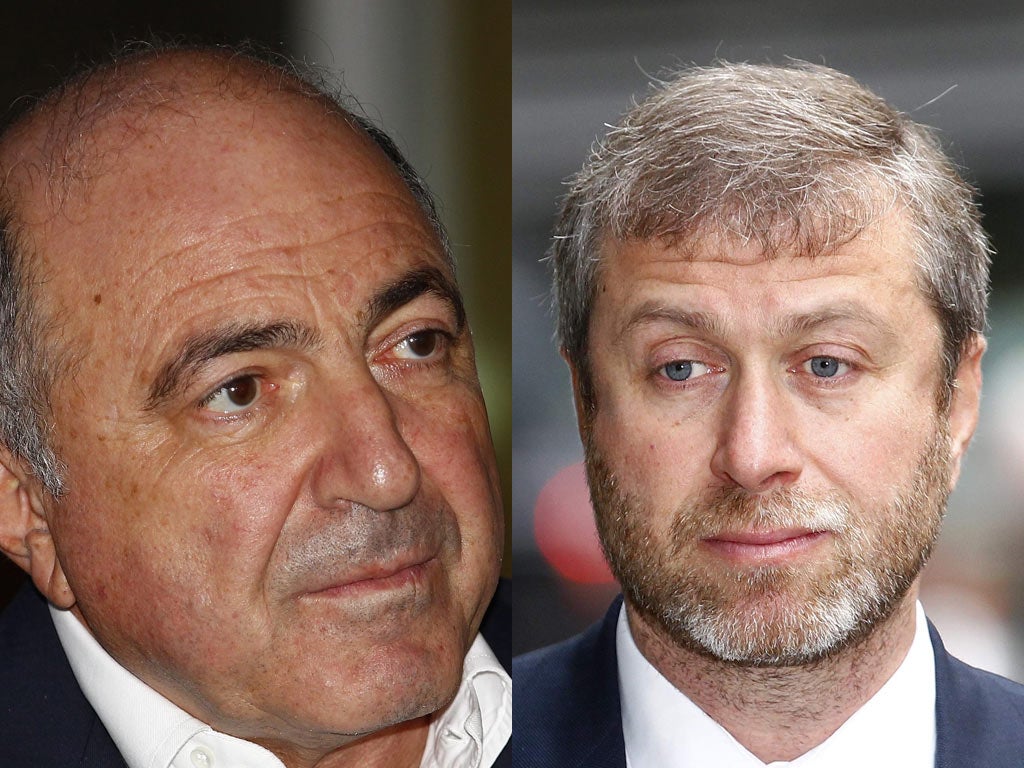Professor Richard Sakwa: Both were ‘gangsters’ – but one was cleverer than the other

The long-running saga of Boris Berezovsky versus Roman Abramovich opened the window on how oligarchical capitalism was established in Russia in the 1990s.
The judgement ruled in favour of Abramovich’s contention that Berezovsky in fact had not really played much of a part in the establishment of the Sibneft oil company. Instead, he had provided political cover, and had not been the prime mover. Instead, he received rather large payments for political services, above all acting as the political ‘roof’ (‘krysha’) with President Boris Yeltsin and others. We learnt a lot about how capitalism was built in Russia, including details of Berezovsky’s less than glorious role, although the big picture has not changed.
Several key points emerge out of the judgement. First, Berezovsky was always more interested in politics than in business. He used companies for the cash flow that they generated, rather than as an opportunity to invest. Berezovsky was a ‘political capitalist’. He differed from others of the era, notably Mikhail Khodorkovsky at the head of the Yukos oil company, who in the end was able to reinvent himself as a ‘corporate capitalist’. All the so-called oligarchs were ruthless in the exercise of political and judicial power to win their assets, but Khodorkovsky and others went on to become the leaders of extremely successful businesses. So did Abramovich, and the trial provided a lot of genuinely new material on how he built up Sibneft.
The second point is the heart of the judgment: that Abramovich did not use intimidation to force Berezovsky to sell his shares in Sibneft as he went into exile in 2000. This provides a powerful insight into how President Vladimir Putin reined in the oligarchs at this time. A few months earlier Vladimir Gusinsky had been effectively coerced into selling his media empire and business interests as he left the country, and this acted as a clear warning to all the others. Berezovsky took the rather large hint that the era in which he could claim to act as a power broker was over, and he sold up to his partner, Abramovich. At that point Putin could act the innocent, and insist only that all oligarchs should be kept ‘equidistant’ from the authorities.
All the oligarchs were kept equally distant, but some were more distant than others. Abramovich was the winner in 2000, buying up Berezovsky’s shares, but in the wake of the expropriation of Yukos in 2003-04, he too was forced to sell up. In September 2005 Sibneft passed into the ownership of Gazprom. Abramovich made a hefty profit: but the sale really was one that he could not refuse. Sibneft has disappeared and is now Gazprom Neft. As far as public opinion in Russia is concerned, both were gangsters; but one was cleverer than the other in adapting to new realities.
This tells us a lot about how business relates to the state today. Although not averse to using overt coercion on occasions, as with the Yukos case, the Putinite system prefers to work though a system of hints and rewards. This is a system that Abramovich understands perfectly, and thus remains a powerful player within Russia. Berezovsky (and Khodorkovsky) failed to grasp how things had changed, and both fell victim to a system which they had in large part created.
Few Russians will have much sympathy for the two slugging it out in the London court, but the Putinite elite will smile with satisfaction as their arch-enemy Berezovsky is humiliated.
Richard Sakwa is Professor of Russian and European Politics at the University of Kent and an Associate Fellow of the Russia and Eurasia Programme at the Royal Institute of International Affairs, Chatham House.
Join our commenting forum
Join thought-provoking conversations, follow other Independent readers and see their replies
Comments
Bookmark popover
Removed from bookmarks